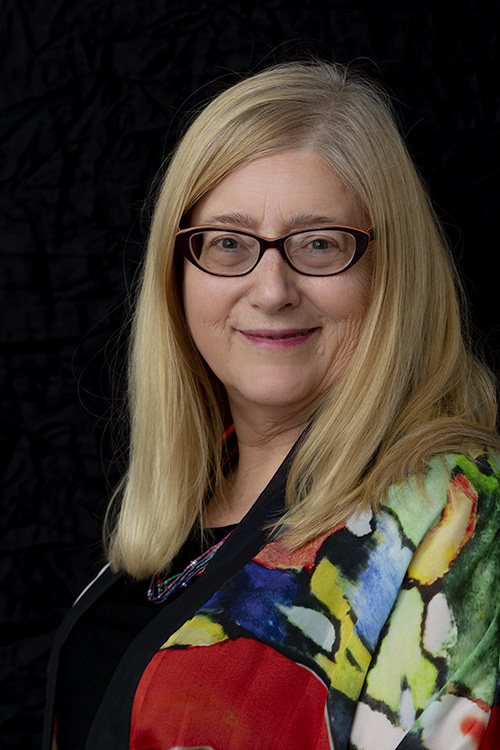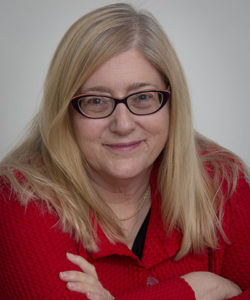First Do No Ageist Harm
Last year I signed up for an online clinical study about brain health and answered a series of questions. The study materials said the research would help discover treatments for Alzheimer’s, Parkinson’s, and other brain disorders. Back then it seemed like a public service to provide information that could help fight disease. I recently completed a follow-up set of questions and came away with a different perspective.
Life after full-time work gives us time to develop in new ways. In the past year, I published my debut novel at age 68 and wrote the first draft of its sequel. I submitted a screenplay to a competition for women writers over 40. I drew on my thirty-year career in biotechnology to judge regional and state science fairs for the first time. I presented at career fairs—another first. Over the course of the year, I walked hundreds of miles and lifted weights four times a week. And I shared the benefit of my life experience with my children as they made important life decisions (but only when asked!). As I began to answer the follow-up questions, I was curious how those growth experiences would be captured in the research study.
But they were not. For an hour I answered one question after another about how my health, memory and functionality had declined. There were a dozen questions about hoarding (If emergency responders came to your home, is there so much clutter they would have trouble finding you?). There were many questions about memory (Do you have more difficulty remembering names than six months ago? A year ago?). There were emotional health questions (How often do you feel hopeless?). There were self-care questions (Are you able to wash your entire body by yourself?). There were zero questions about developing new skills, completing new accomplishments, or sharing a lifetime of wisdom. Most multiple-choice questions allowed graduated responses for how badly you were doing (from slightly worse than a year ago, down to a polite version of “I suck at this”). But there was no separate answer for doing better than a year ago, just a box that combined doing better with doing the same as a year ago. For almost every question, there was no way to stipulate positive change.
As I answered question after question, I noticed that I felt less pride in my accomplishments and began to doubt myself. Maybe I do have more trouble remembering names than a year ago; how would I quantify that?
This is a legitimate ongoing program with approval from an Institutional Review Board charged with protecting patient safety. The investigators running this study are physicians at a prominent California medical center. Funding is provided in part by charities and public health organizations. Yet the experience left me with doubts. As Lily Tomlin once said, “No matter how cynical you get, it’s hard to keep up.” In other words, follow the money. These investigators, immersed in the same ageist culture as the rest of us, are involved in research that will likely receive more funding if more people show signs of dementia.
When I looked more deeply at the donor organizations, I found that some of the money comes indirectly from biopharma companies such as Biogen, developer of a controversial Alzheimer’s treatment. Biogen’s Aduhelm is a monoclonal antibody delivered intravenously in a physician’s office once a month. It was originally priced at $56,000 a year. FDA approved this drug even though its own expert Advisory Panel voted 10-0 to reject the medication because the data in support of approval was contradictory and insufficient.
In addition to questions about efficacy, there were safety concerns. Patients receiving this medication must have regular brain scans because of the potential for brain swelling and bleeding. Because of the high cost of this medication and questions about its efficacy, Medicare will only cover Aduhelm if a patient is part of a post-approval clinical trial. Many physicians choose not to prescribe this medication due to safety and efficacy concerns.
Six months after approval Biogen announced it was cutting the price to $28,200 per year in order to lower the impact of this drug on the United States healthcare system.
No doubt the researchers for the study in which I am enrolled are motivated by the desire to help patients. But where is their incentive to study the positive aspects of aging? And does this study, planned to ask questions of 100,000 participants, have the potential to harm participants and thereby increase the market for drugs like Aduhelm?
I completed the follow-up the same week that I read Becca Levy’s new book, Breaking the Age Code: How Your Beliefs about Aging Determine How Long and How Well You Live. Dr. Levy is a Professor of Epidemiology and researcher at the Yale School of Public Health who studies the effects of ageism on societies and individuals. She contrasts the opportunities for seniors in an age-positive culture like Japan with our stigmatized experience in the United States. In study after study, Levy documents that people exposed to ageist messages perform less well as those messages accrue. Ageism has a major effect on health. On average, people with positive beliefs about aging live 7.5 years longer than those with negative beliefs. This book raised my consciousness about the impact of ageism. And reflecting on the book, I wondered what Levy would think of a study that immersed participants in every negative health and behavioral stereotype of aging.
Can an approved research study like the one I am enrolled in lead to greater internalized ageism? Is a set of questions that asks only about decline and nothing about growth implicitly (or even explicitly) ageist? Does such a study have the potential to negatively affect the health and welfare of respondents? What is the responsibility of the Institutional Review Board overseeing patient safety for a study like this?
I contacted the Institutional Review Board and recommended that they review Dr. Levy’s research. I asked them to apply that learning to the California study they oversee. Could this study harm participant attitudes, health, and even lifespan? A Board representative wrote back with thanks, and said their findings will be confidential. But if at some point I’m asked to sign a new Informed Consent, where the Risk section goes beyond, “Some of the questions may upset you,” then we are making progress. And if someday I’m asked to complete a follow-up set of questions that balances growth with challenges, that will be even better.
So, First Do No Ageist Harm
When we examine our culture from a pro-aging, anti-ageist perspective, even science looks different. Science is not just about results and data. Science is driven by the questions we ask and equally by the questions we leave out. That is true too for clinical studies run by physicians whose careers exist to benefit patients. Surely, they want to first do no ageist harm.



11 Responses
I am a therapist of 40 years who is currently treating mostly people on Medicare. I have both seen and experienced the damage that simple questions can do, let alone full-on biased ‘research’ as you encountered. Many of my patients went through the same system you did, however we know that this is happening all over the country.
Hi Stella,
I read and appreciate your recent piece on not doing harm. I agree that questions imply assumptions, and I resonate with your observations. My book was an attempt to examine the ways old women are portrayed in fiction by women, and I continue to “discover” books that portray old women as multi-dimensional characters. At 81, I have slowed down, and I resent attempts to pretend that 80 is the new 60, for example. I recently dipped into Ursula LeGuin’s collection of brief essays (No Time to Spare” written in her eighties and nineties, and I recommend you and your readers follow up your blog by reading her first 4 essays about the realities of her aging. The opening one is sparked by a questionnaire sent by Harvard to the graduating class of `1951. You will enjoy it, I think.
Ruth Saxton
Thanks so much for your reflections, Ruth. It is essential that we women past midlife be represented as we are, in all our complexity, in literature, in the media, and in surveys and other clinical studies. And thank you for the suggestion to read Ursula LeGuin’s essays. I’ve long been a fan of her science fiction, which has an emotional depth I treasure in Octavia Butler’s science fiction as well.
PS For readers who don’t know Ruth Saxton’s work – she is the author of “The Book of Old Ladies: Celebrating Women of a Certain Age in Fiction,” an incisive volume about the ways women past midlife have been portrayed in literature over the years. I was happy to interview Ruth in a previous blog .
Thank you Stella for being an advocate of aging and you’re still a youngster. It gets worse.
Oh my goodness, Linda! Thank you for your thoughts.
Here’s hoping it gets better as well as worse. So far, aging is full of surprises, good as well as not-so-good.
May we all “accentuate the positive,” as the song says.
Excellent article, Stella, and important points. Your awareness helped you understand what you were feeling because of the lack of choice of positive answers. How many of the other 100,000 participants just accepted that they had declined in the last year?
Thank you, Wendy. My fantasy is every participant rushes out and buys a copy of Becca Levy’s new book. We shall see…
There is absolutely no money to be made from positive aging. Any type of “research” always has an agenda from Big Pharma and the medical community and that is to profit from our decline. Psychotropic drugs are garbage and do much more harm than good and yes, I’m including this Alzheimer’s drug in with all the other types of mood altering drugs.
Thank you for your thoughts, Lisa.
Because I’m lucky to have tools to push back on internalized ageism, the research questionnaire in which I participated had a short-lived effect on my mood. I don’t know whether or how it has affected the mood of anyone else taking the survey. I only know that per Dr. Levy’s research, overall attitudes about aging have an impact on wellness and longevity.
As for the effects of any medication on mood, that would be disclosed in the package insert negotiated between FDA and the medication manufacturer. I’m not aware that any Alzheimer’s medication is considered psychotropic.
Polypharmacy, (including psychotropic, antidepressant, anti dementia, anti psychotic, and anti convulsant meds), is routinely employed in dementia care. Yes, each drug targets particular neuro transmitters, but the synergistic effects and debilitating side effects from these drugs certainly does more harm than good, and to what end?
Interesting, Lisa! I’ve read that the Women’s College Research Institute in Canada, which studies aging specifically in women, has a key area of focus on de-prescribing medications for older women.